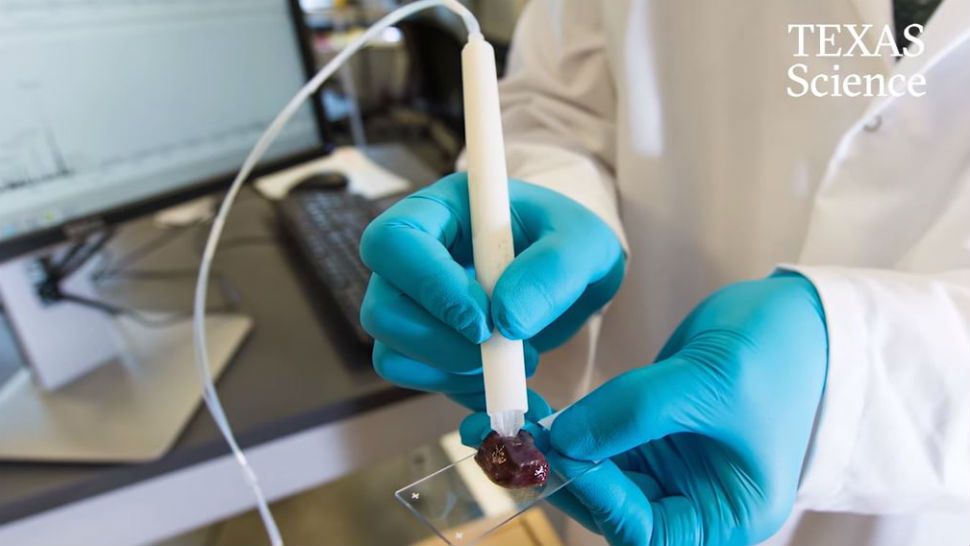AUSTIN, Texas — A University of Texas at Austin professor and her team’s cancer-detecting pen received major praise at this year’s SXSW conference.
Livia S. Eberlin, an assistant professor of chemistry who led the team that created the MasSpec Pen, won the prestigious SXSW Interactive Innovation Award.
Other scientists representing the MasSpec Pen team at SXSW are Jialing Zhang, Marta Sans, Noah Giese, Aydin Zahedivash, and Nitesh Katta.
The device will allow surgeons to identify cancerous tissue in seconds.
“This is special for our team because South by Southwest is an Austin event, and the MasSpec Pen is something that we developed in Austin,” said Eberlin.
The and her team won in the Health, Med, and Biotech category, beating out competitors from Georgia, Virginia, California and Austin.
How does it work?
According to the press release, a surgeon gently touches the tip of the pen to the tissue during surgery. Within the tip, a tiny drop of water is exposed to the tissue. All living cells, healthy or cancerous, produce small molecules called metabolites. Each type of cancer produces specific metabolites that act like a fingerprint. The water droplet at the end of the pen captures these metabolites and pulls the molecules up through a tube to a mass spectrometer that can analyze the molecules and return results in about 10 seconds.
The current method for diagnosing cancers and determining the boundary between cancer and normal tissue during surgery is pathologic evaluation, a process that can be subjective and takes closer to 30 minutes for completion.
The MasSpec team said it will quicken cancer surgery and thus reduce risk to cancer patients of infection and negative effects of anesthesia.
And because for some types of cancers, the pathology evaluation yields unreliable results in as many as 10 to 20 percent of cases, the MasSpec Pen is also needed to ensure effectiveness: In tests on human cancer tissue, the MasSpec Pen was accurate in 96 percent of cases.
Eberlin and her team are currently preparing for testing in clinics at Dell Medical School, MD Anderson Cancer Center and Baylor College of Medicine.



